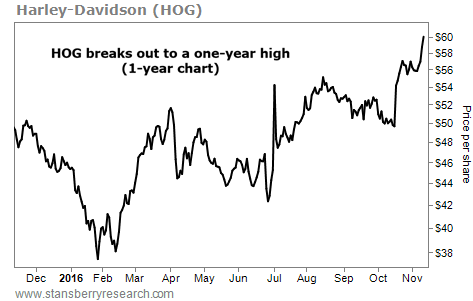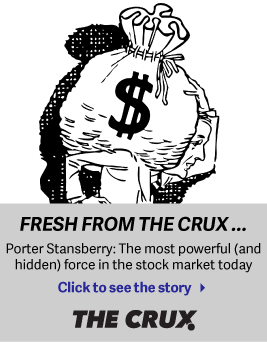| Home | About Us | Resources | Archive | Free Reports | Market Window |
Answer These Three Questions to Rate Your BrokerBy
Friday, November 11, 2016
In native cultures, medicine men wield power because their communities believe they have magical powers.
To reinforce their mystique, these crafty connivers invent words and phrases that their followers can't understand. The idea is something like: "If you don't understand what I'm saying, how can you doubt my power?"
Modern-world medicine men – doctors, lawyers, and, yes, brokers – sometimes do the same thing. Like their primitive predecessors, they often wield power over their clients by verbally intimidating them.
Many people (consciously or not) put their brokers on pedestals of reverence. As a result, they are reluctant to question the advice they get, or worse, they feel compelled to follow it out of some sense of submissive gratitude.
The truth is that brokers are nothing more than tradesmen. They have knowledge and skills that they sell. To earn their fees, they must work hard and well for you.
So starting today, I want you to change the way you think about your broker. Promise yourself that you will not let him bully you – that you will actively and consciously be the boss. Rather than think "Gee, he's such an expert," think "I am paying this guy good money. If he doesn't prove to me that he is an expert, I will fire him."
And when you get advice, instead of thinking "I had better do what he says," think, "This guy may know his field, but he doesn't know me. I am the best and sole judge of what is best for me. Only I am qualified to decide what I should do."
It starts with these three questions...
A good professional feels obliged to communicate clearly with his clients. That means translating the arcane language of his profession into advice that can be readily understood. You can determine whether your broker has a commitment to communication by asking yourself:
Do I feel like I spend enough time with him? Or do I feel like he is usually busy and I'm taking up his precious time?
When he sends me documents, does he often attach a cover letter that explains, in layman's terms, what the documents say?
Do I frequently feel lost or confused when he gives me advice? (This should rarely happen. And when it does, you should feel free to ask questions and get clear, understandable answers.)
A good professional doesn't treat all his clients exactly the same. He understands that each client has his own specific concerns, worries, problems, and needs. A good professional takes time to understand this and tailors his advice accordingly. If you feel like you are getting cookie-cutter advice from your broker – or if you feel like he doesn't really care who you are – he is not doing his job.
A good professional relationship is one where the client is the boss and feels like the boss. You should be able to figure out how you feel about your broker instantly. If you don't feel in charge, you aren't. If you don't feel you can speak frankly about any fears and concerns you have, you are not in charge. If you don't feel free to criticize him, you are not in charge.
Here's what you need to understand: The only way you can feel like the boss is if your broker feels like you are the boss. If he doesn't – if he thinks you are just another schmuck who needs his help – you will never be in charge.
How do you feel about your broker now? Are you feeling upset? Are you realizing that you're getting less from him than you deserve?
If so, here's what I suggest...
Call or e-mail your broker and tell him you want to have a 15-minute meeting about your "professional relationship." If he asks why, say that you want to talk about whether the value you're getting is worth the money you're paying.
If he refuses to have the meeting, you don't need to put another thought into it. He isn't doing his job. Get rid of him.
If he does give you a meeting, go in prepared. In a few sentences, tell him exactly how and why you are dissatisfied. Don't be judgmental. Express your concerns as statements of your future expectations. Don't say, "You talk in an intimidating way." Say, "I want crystal-clear explanations of all your advice and full and clear answers to all my questions. Can you provide me with that?"
That's all you have to do. If you end up "firing" him, don't spend a moment regretting it. Just go out and find someone better. You can do that by interviewing a few different ones and list your expectations and ask if he can meet them.
Be the boss. It's your money.
Regards,
Mark Ford
Editor's note: Mark has been writing about the "crafty connivers" in the financial industry for years. It's just one facet of his full wealth-building system. He and his team at the Palm Beach Research Group recently launched a program to teach people everything from preserving money to the fastest way to earn a fortune in America. Learn more here.
Further Reading:
DailyWealth classic: "If spending as little as possible is your objective, an online discount broker is the way to go," Mark writes. "But for many people – particularly older people – having someone you know who will answer your phone calls and explain your monthly statements is a considerable value." Mark uses a full-service broker. And he asks a lot of him. Read more here: Here's Why I'll Never Use a Discount Broker.
Years ago, Mark fired his broker. "Never, ever allow a broker to be in charge of the conversation," he writes. "You're the boss. He should listen to you." See why he argues you shouldn't be "loyal" to your broker right here.
Market NotesTIME TO GO FOR A RIDE One of our "real-world indicators" is telling us "things can't be all that bad" with the U.S. economy.
Longtime DailyWealth readers know we like to check in on a handful of companies and industries to get a quick read of the economy... At the end of October, for example, we showed you why the strength of FedEx (FDX) and Amazon (AMZN) show that the U.S. economy is chugging along. Things can't be all that bad when these types of companies are enjoying booming profits and share prices.
Harley-Davidson (HOG) is America's largest and most popular motorcycle maker. Since many of its motorcycles cost more than $15,000, Harley's fortunes are tied to America's ability to spend extra money on "toys."
As you can see in today's chart, the stock recently broke out to a one-year high. It's up 32% over the last 12 months. America is still buying toys... And Harley shares are climbing. It's another sign that "things can't be all that bad" with the economy...
 |
Recent Articles
|



